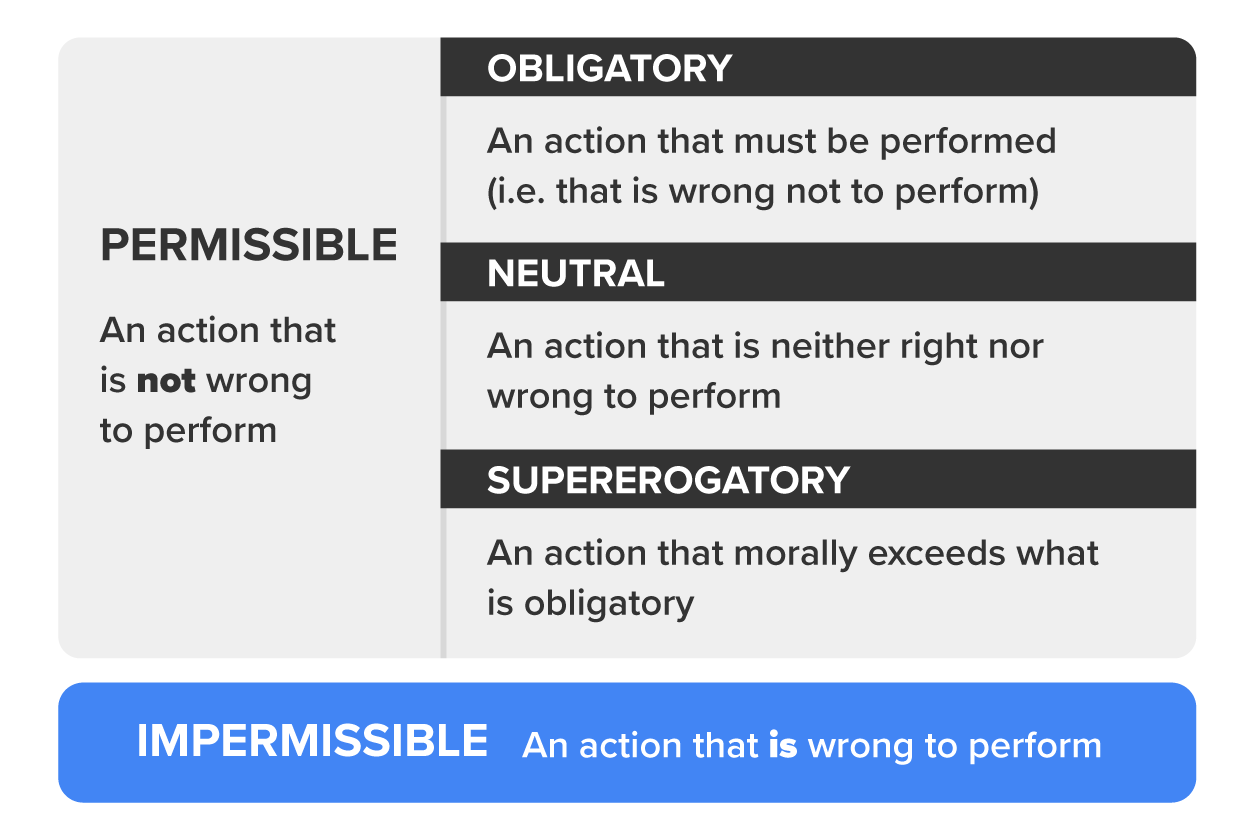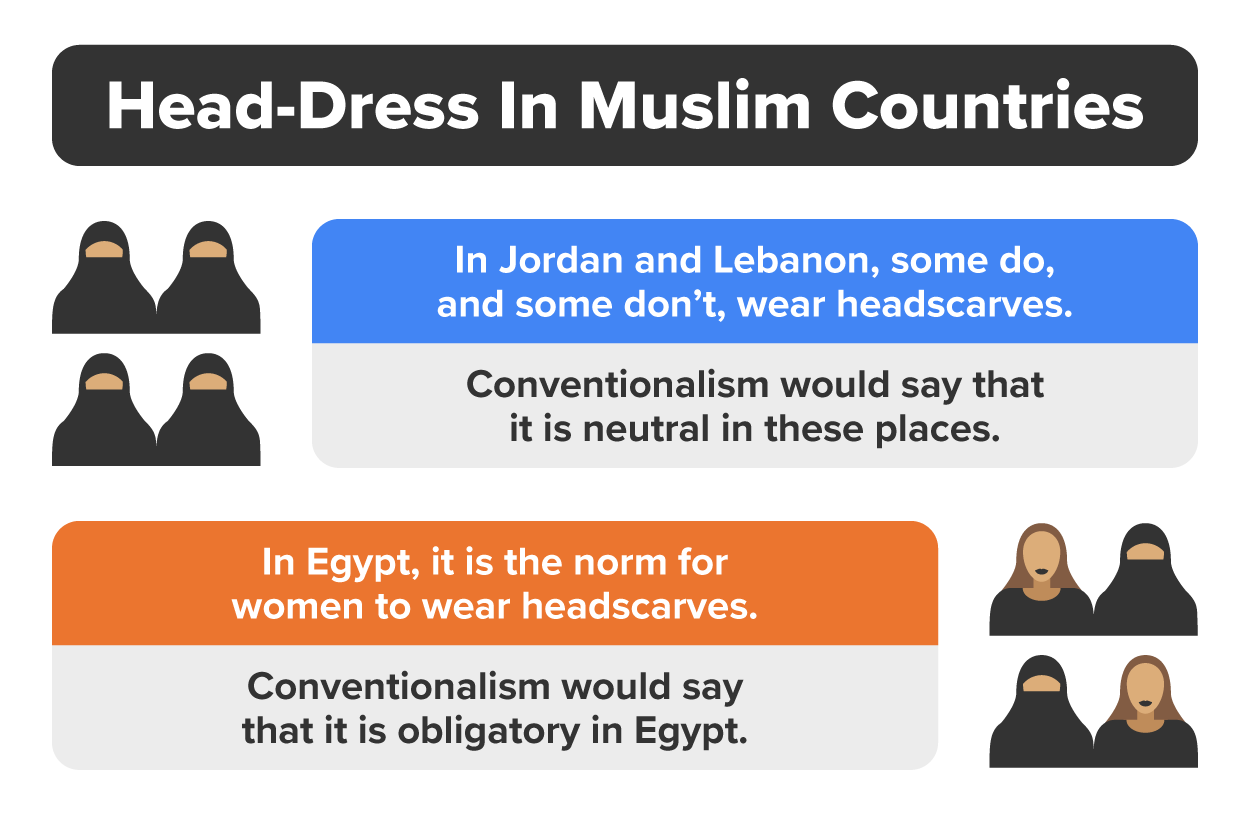Table of Contents |
To begin with, recall that conventionalism is a relativist theory of ethics that maintains that what is good is determined relative to a society, convention, or culture.
Like any theory of ethics, this can help you evaluate actions. If you were to use this theory, then you would evaluate actions according to what is normally accepted in your culture or society.
In the next section, we will look at the various ways a conventionalist can evaluate actions. But before doing so, let’s remind ourselves of the terms that ethical theorists use to evaluate actions.

For a conventionalist, something is permissible if a culture or society does not forbid it. For instance, most people in the United States are allowed to own guns. A conventionalist will say that it is thus morally permissible to own guns if you live in America. There are standards specific to all different societies.
EXAMPLE
Divorce is almost wholly accepted in many places, such as the United States, France, Britain, and Spain. Since most people in these societies do not find divorce unacceptable, the conventionalist will say that it is morally permissible in those places.What is impermissible for a conventionalist is anything that most people in a society consider to be unacceptable.
EXAMPLE
Most people in the United States think extramarital affairs are unacceptable. Thus, if you are an American conventionalist, you must think that extramarital affairs are morally impermissible.If we turn to a different topic, say, the death penalty, it is considered unacceptable by the vast majority of Europe, but widely accepted in places such as the Middle East and the United States. Thus, a conventionalist will say that the death penalty is morally impermissible in Europe, but permissible in certain parts of the United States and the Middle East.
We will now look at various examples of neutral, obligatory, and supererogatory actions based on conventionalism. First of all, let’s take the topic of fertility.
EXAMPLE
Countries with a Christian culture, such as Nigeria, Brazil, and the United States, tend to think having children is your duty. A conventionalist will say that it is morally obligatory to have children in those communities that have these views. By contrast, more secular countries, such as France or the Czech Republic, are neutral about having children. That is, it is neither right nor wrong.Another issue that’s related to religion is clothing. Consider the following examples:

Now let’s look at some supererogatory actions, beginning with the topic of family care responsibilities.
EXAMPLE
In the United States, it is common for grandparents and other older members of the family to move into care institutions. If you decide to do the care work yourself in your own home, then many people would think you’ve gone above and beyond what is morally required of you. In other countries, such as Mexico, this is actually the norm. In this case, the conventionalist will say that keeping your grandparents at home is obligatory.Another instance of a supererogatory action is giving everything you have to charity.
EXAMPLE
Although charity is common in many countries, there is no society in which it is normal for its members to give everything to those in the world that need it most. Thus, it is supererogatory to do so.Now that you have seen how ethical evaluations can be based on conventions, you can think about using this in a specific situation.
